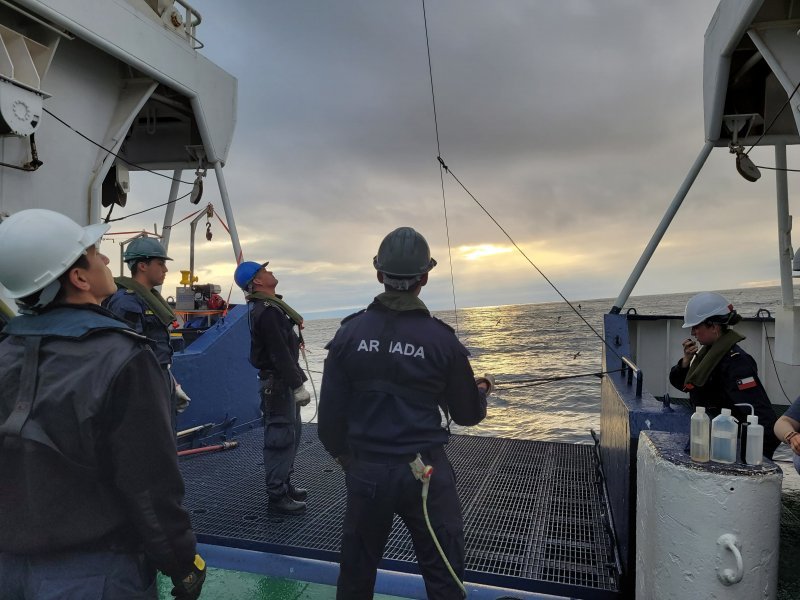On board the Oceanographic Vessel of the Chilean Navy AGS-61 “Cabo de Hornos” the Marine Research Cruise in Remote Areas (CIMAR) was carried out in its version No. 29, which materialized from the access to the Chacao Channel to Cape Horn.
On this cruise, along with the Unit’s crew, 20 scientists from different specialties related to the world of science and representatives of recognized Institutions dedicated to Research and universities embarked, who collected various samples of both sediments and seawater.
This, to develop more than 7 projects that seek to determine the behavior, distribution and characteristics of the oceanic water masses adjacent to the southern fjords and channels, as well as quantify the impact through the transport of physical, chemical, biological properties and toxins. seascapes towards the southern tip of Patagonia.
In this regard, the Commander of the Ship “Cabo de Hornos”, Captain Francisco Abarca, pointed out that, “we have been sailing for more than 24 days to once again contribute our capabilities and dedication to a new CIMAR cruise. To date we have carried out more than 20 oceanographic investigations, taking samples and carrying out studies at more than 3,500 meters deep in some stations.”
“We have shared experiences and worked with a great spirit of collaboration with scientists from renowned Institutions and Universities. All of this is the permanent commitment of the Chilean Navy, through our Ship and its equipment, with the study of marine sciences in favor of national development,” the officer stressed.
It should be noted that this cruise for the first time was financed by the National Research and Development Agency of Chile (ANID). Likewise, the expedition helped to fulfill the objectives of the National Oceanographic Plan 2021-2030, the guidelines of the National Ocean Policy and its National Ocean Program and the Decade of Ocean Sciences for Sustainable Development (IOC/UNESCO).
FormerFollowing

